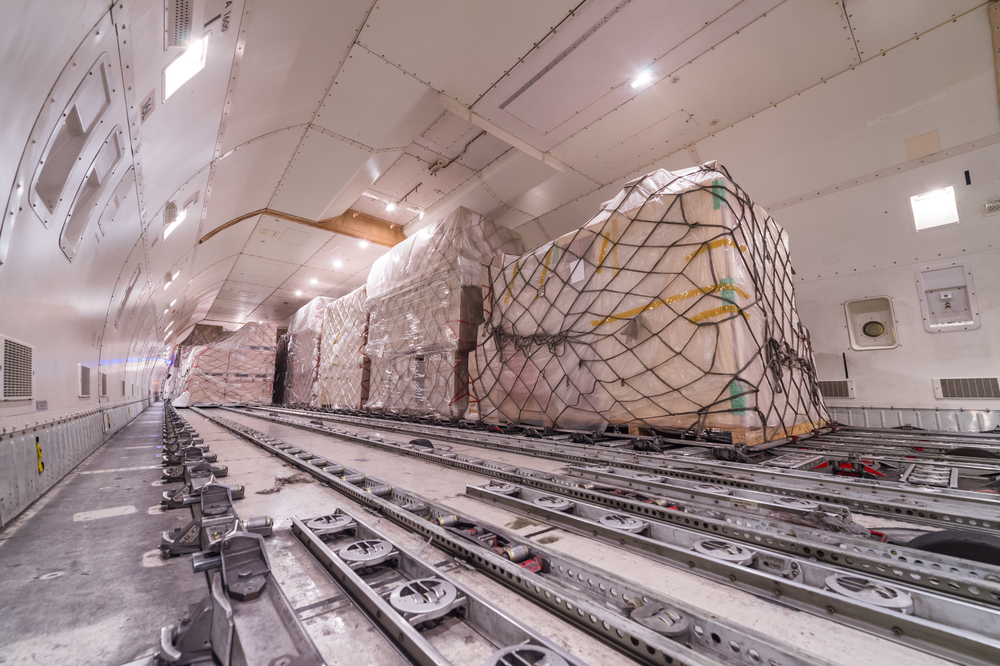Calls for all-cargo specific regulatory framework in aviation
13 / 09 / 2021

Credit: tratong/ Shutterstock
Air cargo industry players and the UAE General Civil Aviation Authority (GCAA) are pushing for the development of an all-cargo specific regulatory framework to reflect the sector’s status as distinct to passenger aviation.
Ahead of ICAO’s high-level conference on Covid-19 to be held October 12-22, director general of the Global Express Association Carlos Grau Tanner and TIACA director general Glyn Hughes called on the UN body to adopt a differentiated, open and flexible economic regime for cargo air services.
In a joint statement, Hughes and Tanners’ argued that the pandemic had exposed the “inefficiencies that still exist in air cargo networks”, which are caused by “outdated policies” while it has also supported the view that passenger and cargo industries are completely different business models and require “unique and specifically tailored regulatory frameworks”.
They pointed to the supply chain disruption caused by the pandemic, the loss of bellyhold networks and the reliance on freighter operations for transporting vaccines, combating the disruption and meeting the needs of a fast-growing e-commerce sector.
“If we want to build more resilience into the international supply chains that are essential to fight global crises, now is the time for ICAO to address such inefficiencies through the adoption of a different, open and flexible economic regime for cargo air service,” they said.
Adding: “For all-cargo airlines and express carriers, flying cargo is their only business. Unlike most passengers, cargo – express or not – travels one way. Without the necessary traffic rights, freighter airplanes risk travelling empty half the time, or at least their capacity would be underutilised, and resources would be wasted.
“Furthermore, as the pandemic amply demonstrated, cargo traffic poses different health risks than passenger traffic – and provides different benefits to people, governments and economies. Logically, different business models call for different regulatory approaches.”
They also pointed out that in countries that had adopted more liberal aviation policies, the all-cargo industry had thrived and generated business activity and jobs.
“Let us draw lessons from this pandemic. Let us make sure we set the foundations of a resilient global air-cargo network that is ready for the next crisis,” the two groups wrote. “Let us make sure ICAO steps up to this challenge andmakes it a top priority to define an open, flexible and distinct regulatory regime for all-cargo services around the world.
“Such a regime must include the whole range of traffic rights, including fifth and seventh freedoms, so as to allow all-cargo operators the ability to optimise the use of their fleets by picking up cargo where and when there is demand for the service and transporting it to where and when the client requests it, with their dedicated fleet, through the most efficient routing; and to make efficient business decisions by allowing them flexibility in the routing of their cargo, and in handling their own fleets.”
Meanwhile, at an ICAO webinar on air cargo digitalization in Covid-19 times, the UAE GCAA recommended the upcoming ICAO high-level conference agree to establish a multi-disciplinary working group to be tasked with developing a cargo-specific regulatory framework that will foster sectoral growth in response to market needs and gives sufficient consideration to develop guidance material on digitalisation of air cargo.
The move comes as there is a renewed focus on air cargo at a regulatory level.
Earlier this year, ICAO’s new secretary general Juan Carlos Salazar urged member states to follow the Council Aviation Recovery Taskforce (CART) recommendation 16 that encourages the implementation of seventh freedom rights for air cargo.
Salazar’s predecessor, Fang Liu, had also noted that “There is an urgent need to ensure sustainability of the global air cargo supply chain and in maintaining the availability of medication, and equipment such as ventilators, masks and other health and hygiene-related goods, which are necessary to assist in reducing the public health risk of the spread of Covid-19”.














